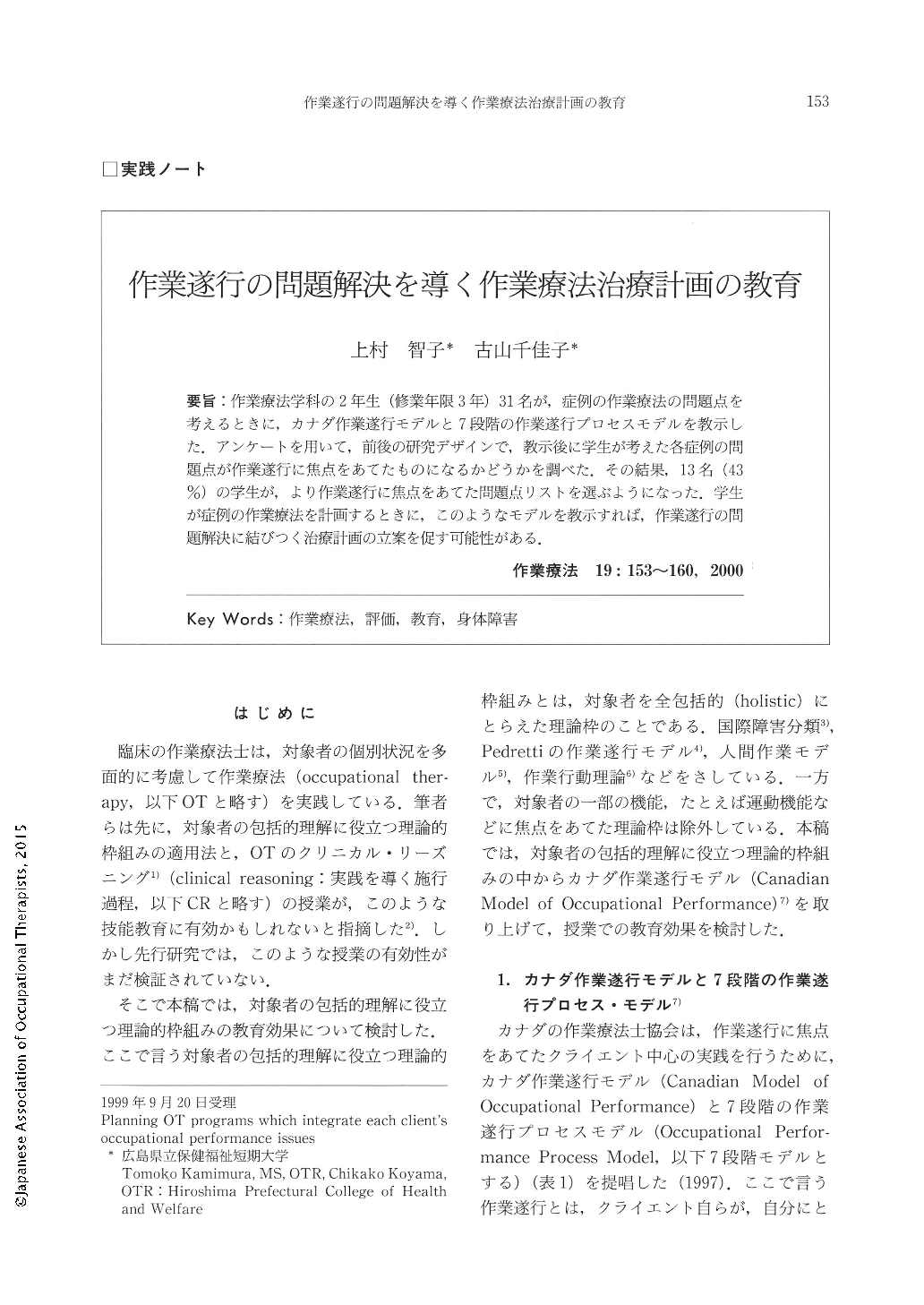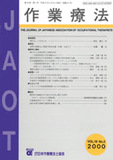Japanese
English
- 販売していません
- Abstract 文献概要
- 1ページ目 Look Inside
- 参考文献 Reference
要旨:作業療法学科の2年生(修業年限3年)31名が,症例の作業療法の問題点を考えるときに,カナダ作業遂行モデルと7段階の作業遂行プロセスモデルを教示した.アンケートを用いて,前後の研究デザインで,教示後に学生が考えた各症例の問題点が作業遂行に焦点をあてたものになるかどうかを調べた.その結果,13名(43%)の学生が,より作業遂行に焦点をあてた問題点リストを選ぶようになった.学生が症例の作業療法を計画するときに,このようなモデルを教示すれば,作業遂行の問題解決に結びつく治療計画の立案を促す可能性がある.
Objective: This study was performed to clarify whether or not teaching the Canadian Model of Occupational Performance (CMOP) and the Canadian Occupational Performance Process Model (COPPM) causes students to plan OT programs which integrate each client's occupational performance issues, and whether teaching these models causes a student's assessment to focus on th client's occupational performance. Methods: The subjects included 31 second-year students who were divided into six groups. Before the lecture on the CMOP and the COPPM, each group was asked to develop a list of problems that would be encountered in a treatment program. Each group was responsible for the care of one patient with either chronic CVA, subacute CVA, or parkinsonism. Each student was asked to fill out a questionnaire before and after the lecture. There were two problem lists in each questionnaire. One was a B list of problems which focused on each client's occupational performance. The other was an A list which did not focus on the occupational performance. We asked each student how similar their thoughts were to each problem list. Results: Following the lecture on the CMOP and the COPPM, the replies of 13 students changed to be more similar to B. Seven students assigned to the client with subacute CVA, who did not have to change his job after the disease onset, continued to not focus on the client's occupational performance. In contrast, the remaining two clients were in chronic phase and would have to change their job. Conclusion: Teaching the CMOP and the COPPM may cause students to plan OT programs which integrate each client's occupational performance issues. Changing of the client's job after the onset according to his/her stage of the illness may influence the tendency for students to plan OT programs which focused on occupational performance.

Copyright © 2000, Japanese Association of Occupational Therapists. All rights reserved.


